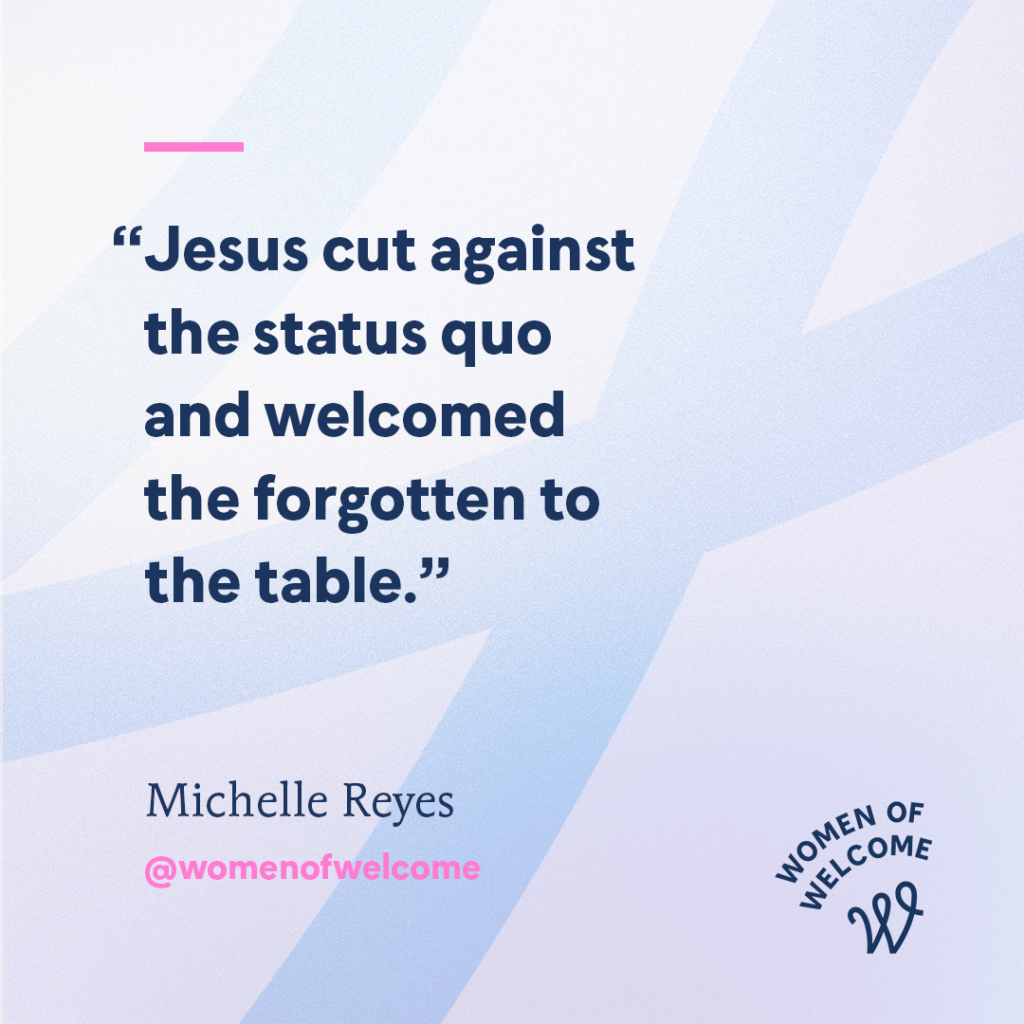Luke 8:42-48
As Jesus was on his way, the crowds almost crushed him. And a woman was there who had been subject to bleeding for twelve years, but no one could heal her. She came up behind him and touched the edge of his cloak, and immediately her bleeding stopped.
“Who touched me?” Jesus asked.
When they all denied it, Peter said, “Master, the people are crowding and pressing against you.”
But Jesus said, “Someone touched me; I know that power has gone out from me.”
Then the woman, seeing that she could not go unnoticed, came trembling and fell at his feet. In the presence of all the people, she told why she had touched him and how she had been instantly healed. Then he said to her, “Daughter, your faith has healed you. Go in peace.”
There are a lot of people in our country who fear immigrants. Pastors and politicians alike have popularized the idea that the folks at our border are not vulnerable families in need of care, but dangerous criminals who have come to trick us and take advantage of our US economic system. Which story are we supposed to believe?
In Luke 8:42-48, we see that Christ-like welcome means believing the story of the vulnerable. In this story, we meet a woman who has a debilitating physical condition that has caused her to bleed for twelve years. Despite the efforts of “many doctors,” her condition is worse than ever. We can only imagine her quality of life. Because of her bleeding, she was an outcast, considered ritually unclean, and she would have been forced to live apart from the rest of society, hidden, forgotten, and lonely. She may not have had much time left to live.
Out of desperation for her dire situation, she lunges into a packed crowd and touches the hem of Jesus’ cloak, believing that just making contact with Jesus could heal her. She doesn’t think that someone like her could actually ask Jesus for help, but she believes in his power. If only she can reach out and touch him! This woman’s faith is proven true, because after she touches the edge of his cloak, “immediately her bleeding stopped” (v. 44).
Jesus’ response feels odd at first. He looks around, asking who touched him. Why would he do that? He’s God; he knows who touched him. His question, however, invites the woman to come forward and tell her story: “In the presence of all the people, she told why she had touched him and how she had been instantly healed. Then he said to her, ‘Daughter, your faith has healed you. Go in peace’” (v. 47-48).
Jesus knew what he was doing. If the woman had just silently disappeared, no one would have believed her story about how she had been healed. Perhaps they would have even thought worse of her, calling her demon-possessed or accusing her of stealing something that wasn’t rightfully hers. By calling her out and making her publicly tell her story, Jesus doesn’t just heal her physically, he restores her dignity as well. He gives her all the time in the world to tell her story. She has his full attention. More importantly, his validation of her story and experience ensures that others will believe and accept her story as well.
We are storied people. Every immigrant has a story. Christ-like welcome to the forgotten in our society, especially immigrants, means that we believe their story. Instead of being immediately skeptical or distrusting, we can respond to immigrants at our border with the kind of welcome Jesus offers this bleeding woman by giving them our full attention and wanting to know their story.
Thoughtful Questions:
- What have you been taught about immigrants in your church? What are the prevailing attitudes of immigrants in your community?
- What is one practical way that you can better listen and understand the stories of immigrants?
- How could you play a more active role in helping elevate the stories of immigrants at the border so that others can hear and believe their experiences?

 This resource answers the most common questions Christians have about immigration and equips you to engage conversations with biblical clarity, truth, and grace.
This resource answers the most common questions Christians have about immigration and equips you to engage conversations with biblical clarity, truth, and grace.